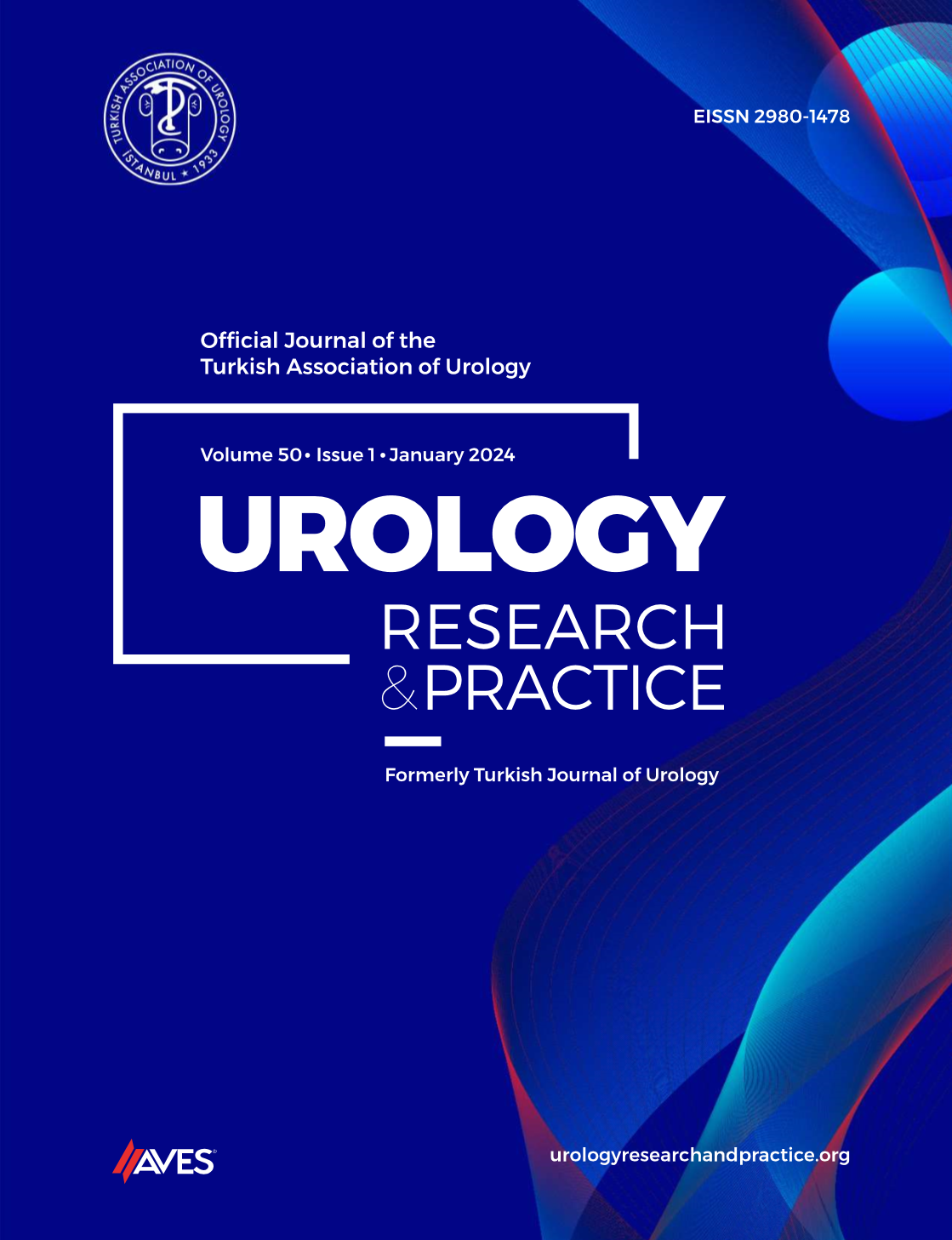Abstract
To date no data exists on current literature addressing the evaluation of erectile dysfunction (ED) with respect to the duration of marriage. In this study we have assessed the patients regarding to duration of marriage and risk factors for ED.
A total of 133 patients, 23 to 76 years old who admitted to our clinic between January 1997 and December 2001 were included in the study. ED status of patients was compared according to the duration of marriage and risk factors for ED. Each systemic disease accepted as risk factor of ED scored as 1 point.
The mean age of patients was 47,6±14,4 years, and the mean duration of marriage was 22,1±15,5 years. Admission for medical advice was concentrated mostly in the period of 30th-40th years of marriage, first year of marriage and 20th-30th years of marriage subsequently. The number of the subjects who admitted to medical care in the first year of marriage was 23 and they had no risk factor for ED. Honeymoon impotence was the chief complaint in 18 of these patients.
ED is mainly due to psychogenic factors at the first few years of marriage. Although organic factors are significant after long marriage intervals, psychogenic factors probably due to routine marital relations may also be involved. As a conclusion in addition to age and risk factors, the duration of marriage should be taken into account in the evaluation of these patients.

.png)


.png)